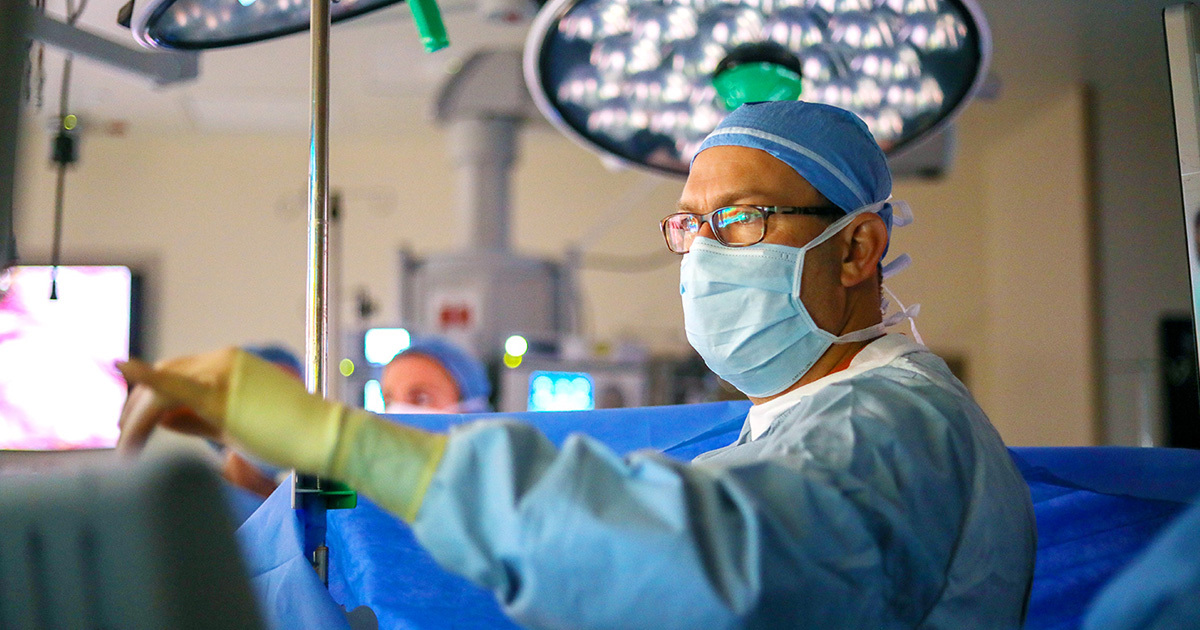About Dysphagia
Swallowing is a complex process that involves many muscles and nerves working together. When something interrupts this process, dysphagia can occur. Because swallowing is so intricate, there are many possible causes.
Doctors generally classify dysphagia into two main types:
- Esophageal dysphagia: Caused by problems in the esophagus (the tube connecting the throat to the stomach). People often feel like food is stuck in the chest or throat.
- Oropharyngeal dysphagia: Caused by problems in the mouth or throat muscles, making it difficult to start swallowing. Patients may cough, choke, or feel food “going down the wrong way.”
Causes of Dysphagia
Esophageal dysphagia may be caused by:
- Achalasia: When the esophagus muscles and the valve at the stomach don’t work properly, causing food to back up.
- Esophageal stricture: Narrowing of the esophagus, often due to scar tissue from acid reflux (GERD), tumors, or other causes.
- Esophageal ring: A thin, narrowed area in the lower esophagus that makes it harder to swallow solid foods.
- Esophageal tumors: Growths in the esophagus that block food passage.
- GERD (gastroesophageal reflux disease): Frequent acid reflux can damage the esophagus, leading to spasms, scarring, or narrowing.
- Scleroderma: A rare disease that causes stiff, scar-like tissue in the body. It can weaken the valve between the esophagus and stomach, allowing acid to flow back into the esophagus.
Oropharyngeal dysphagia may be caused by:
- Muscle weakness or nerve problems that affect chewing and swallowing
- Food or liquid entering the airway instead of the esophagus (aspiration)
Complications may include:
- A husky or hoarse voice
- Coughing or choking while eating or drinking
- Aspiration pneumonia, a lung infection caused by food or liquid entering the airway
Symptoms of Dysphagia
Dysphagia symptoms can range from mild to severe and may get worse over time.
Symptoms may include:
- Trouble starting a swallow
- Feeling like food is stuck in the throat or chest
- Coughing or gagging while eating or drinking
- Hoarseness or a husky voice
- Regurgitation of food
- Frequent heartburn or acid reflux
- Drooling
- Painful swallowing
- Unexplained weight loss
Diagnosing Dysphagia
Your doctor will begin by reviewing your medical history and symptoms to determine whether you have esophageal or oropharyngeal dysphagia.
Tests may include:
- Barium swallow test: An X-ray taken after drinking a special liquid that highlights the esophagus.
- Endoscopy: A flexible tube with a camera is inserted into the throat to examine the esophagus and, if needed, take tissue samples (biopsies).
Treating Dysphagia
Treatment for dysphagia depends on the underlying cause and severity.
Options may include:
- Esophageal dilation: Using a balloon or stent to widen a narrowed esophagus.
- Medications: To reduce acid reflux, control spasms, or relax esophageal muscles.
- Surgery: To remove blockages or correct structural problems.
- Botox injections: To relax tight esophageal muscles in certain cases.
- Swallowing therapy: For oropharyngeal dysphagia, a speech-language pathologist can teach techniques to improve muscle coordination and make swallowing safer.
Your care team will work with you to create a personalized treatment plan designed to improve your comfort, safety, and overall quality of life.
Care Team Approach
At UT Health Austin, we take a multidisciplinary approach to your care. This means you will benefit from the expertise of multiple specialists across a variety of disciplines caring for you in one place to avoid having to schedule multiple appointments with providers at locations all over the city. The Texas Center for Esophageal and Foregut Surgery care team includes fellowship-trained foregut surgeons, physician assistants, nurse practitioners, dietitians, social workers, and more who work together with gastroenterologists and other specialists to restore digestive and esophageal function and improve your overall well-being.
We collaborate with our colleagues at the Dell Medical School and The University of Texas at Austin to utilize the latest research, diagnostic, and treatment techniques, allowing us to offer state-of-the-art, evidence-based treatment options for foregut conditions. Advanced imaging and lab testing are also available on-site if needed.
Learn More About Your Care Team

Gastroenterology Clinic
Health Transformation Building, 8th Floor
1601 Trinity Street, Bldg. A, Austin, Texas 78712
1-833-UT-CARES (1-833-882-2737)
Get Directions

Texas Center for Esophageal and Foregut Surgery
Health Transformation Building, 8th Floor
1601 Trinity Street, Bldg. A, Austin, Texas 78712
1-512-495-GERD (1-512-495-4373)
Get Directions